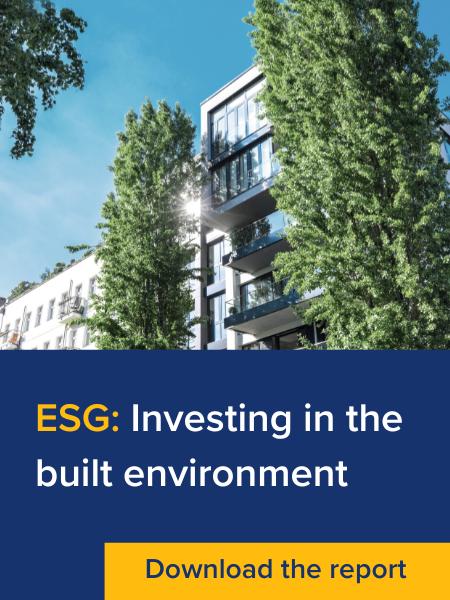
We can see that environmental, social and governance (ESG) principles are impacting on corporate behaviour in all sectors, but we wanted to gain a deeper understanding of this behaviour and what the potential hurdles may be within the UK built environment.
We commissioned the Cambridge Centre for Housing and Planning Research to conduct a desk-based, evidence-rich review that focused on real estate and particularly the housebuilding, banking and investment sectors. The outcomes have recently been published in our report.
Benefits of ESG investing
Several benefits were found to be associated with ESG investing, including:
- Companies with good ESG scores perform better operationally and are seen to be less risky by investors
- On the stock market, companies that disclose their ESG scores often lower the cost of capital
- Companies that adopt higher environmental governance than current policy thresholds achieve higher market valuation than those that do the minimum.
Challenges identified
Despite these benefits, there are challenges associated with ESG investing, including:
- Prioritisation of the environmental dimension over the social and governance dimensions
- Self-reported data and limited evidence of verification
- No common benchmark for data and different timeframes for data capture and updating
- Lack of clarity over the content of the UK Green Taxonomy and the extent to which it will differ from the EU Taxonomy Regulation.
Impact on the housing sector
There are several areas where ESG principles inform the investment decisions made by banks and investment companies in the housing sector. We know that almost every bank has appointed a head of ESG, reflecting the importance of ESG to lenders. This is also reflected in almost every bank having its own products and services that align with ESG measures. Our research has found that:
- Green lending and sustainability-linked loans continues to expand
- Growing involvement in the development of sustainability-focused frameworks and standards to help the housebuilding sector decarbonise as part of investors' transition strategies to reduce expose to climate change risks. For example, HSBC, Lloyds, Nationwide Building Society, NatWest and Wells Fargo are members of the UK Green Building Council whose mission is to "radically improve the sustainability of the built environment"
- Most major banks have an ambition to support UK mortgage customers to increase their energy efficiency as well as to encourage them to purchase energy efficient homes
- Some investors are supporting skills development in the housebuilding sector to close the future skills gap
- Some banks support small and medium-scale enterprises that are driving sustainable innovation within the industry.
Investor decisions shaping the UK housing sector
It is clear from our research that investor decisions are shaping the UK housebuilding sector and supporting its decarbonisation. It is great to see lenders setting up benchmarks and advising national bodies like the UK Green Building Council, and it is undoubtedly setting a high bar for what good ESG practices look like. However, this also adds further complexities. Housebuilders are left choosing which investor-driven standards they should align themselves to, potentially missing out on areas that would benefit the specific needs of their own stakeholders.
Clear benchmarks will accelerate sustainable growth opportunities
Our report shows that lack of clarity on disclosure requirements and key performance targets is leading to differences in approaches that experts say limit UK growth opportunities. Who would have thought that regulation may be what is needed to ensure ESG lending and investment continues to flourish in the UK?





